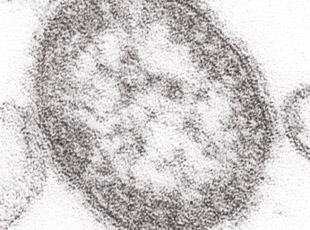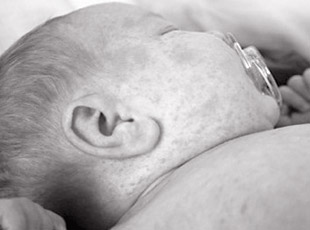Measles outbreak under control
Number of cases on the decline:
By Dhaneshi Yatawara
The health authorities are on alert of a possible measles outbreak
which is at a very mild stage, according to the Epidemiology Unit of the
Ministry of Health. Within the past six months less than 600 patients
were detected with measles being admitted to hospitals, according to the
Epidemiology Unit.
 |
|
Dr. Paba Palihawadana |
"Hospitals have noticed that more children are getting admitted with
measles like symptoms. The Lady Ridgway Hospital started informing and
some more clinicians also notified about patients with symptoms positive
for measles," said Director of the Central Epidemiological Unit of
Ministry of Health Dr. Paba Palihawadana.
|

Measles virus |
Since different types of viral fevers are spreading in the
communities the Epidemiology Unit have notified the hospitals and
clinics that the patients need to undergo a blood test and the samples
need to reach the Medical Research Institute to identify whether the
patient is suffering from measles, dengue or just another flu. "Parents
tend to admit children to hospitals mainly as we believe because
children are more susceptible to contract respiratory infections with
measles. So we see more children being admitted rather adults," said Dr.
Palihawadana explaining the present context of the disease outbreak.
"We had an outbreak in 1999 so this is after 19 years. Even the 1999
outbreak was after ten years after the previous one. Though measles is
very contagious and can spread very fast we did not see such a threat
during this time as majority of the population is immunised," she said.
"But now we see a slight decline in the number of patients". Measles,
according to Sri Lankan health regulations, is a notifiable disease. "We
have a standard notifying system at every moment a measles patient is
identified. So accordingly the information reaches the Epidemiology
Unit. Hospitals and clinicians are supposed promptly to notify the MoH
offices of the locality and these offices inform our unit," said Dr.
Palihawadana.
According to Dr. Palihawadana the epidemiology unit have observed
that compared to last year the number of patients are more. The entire
case load so as reported is less than 600 patients - in the past six
months. Considering the numbers and nature of disease prevalence shows
no signs of a major outbreak though measles is high contagious," Dr.
Palihawadana said.
"This is not spreading in clusters and distribution of patients seems
very localised. Mostly infections can be seen only within the family but
not in a community living closely. But as children are getting affected
we are taking precautions," said Dr. Palihawadana.
"Our children are immunised against measles. Since 1984 the
immunisation program was going on. So large number of people are
protected against this disease. And other adults who were infected
during their life time also have a good immunity naturally built in
their bodies," said Dr. Palihawadana.
|

The identifiable skin rash |
 In 1980, before widespread vaccination, measles caused an estimated
2.6 million deaths each year. Measles is caused by a virus in the
paramyxovirus family. The measles virus normally grows in the cells that
line the back of the throat and lungs. Measles is a human disease and is
not known to occur in animals. In 1980, before widespread vaccination, measles caused an estimated
2.6 million deaths each year. Measles is caused by a virus in the
paramyxovirus family. The measles virus normally grows in the cells that
line the back of the throat and lungs. Measles is a human disease and is
not known to occur in animals.
Since 2000, more than one billion children in high risk countries
were vaccinated against the disease through mass vaccination campaigns -
about 225 million of them in 2011. Global measles deaths have decreased
by 71 percent from an estimated 548,000 to 158,000. People who recover
from measles are immune for the rest of their lives. No specific
antiviral treatment exists for measles virus. Measles outbreaks can
result in epidemics that cause many deaths, especially among young,
malnourished children. In countries where measles has been largely
eliminated, cases imported from other countries remain an important
source of infection. Vitamin A supplements have been shown to reduce the
number of deaths from measles by 50 percent. Since 2000, with support
from the Measles & Rubella Initiative (MR Initiative) over 1 billion
children have been reached through mass vaccination campaigns - about
225 million of them in 2011. The MR Initiative is a collaborative effort
of WHO, UNICEF, the American Red Cross, the United States Centers for
Disease Control and Prevention, and the United Nations Foundation to
support countries to achieve measles and rubella control goals. In April
2012, the MR Initiative launched a new Global Measles and Rubella
Strategic Plan which covers the period 2012-2020.
(Source - World Health Organisation)
|
According to the observations of the Epidemiology Unit majority of
the patients were infants below one year of age. "It was little more
than 50 percent. Above 40 percent were above 30 years of age. Those were
the age groups that was largely affected. Then in between there were
patients of different age groups," Dr. Palihawadana said. "We need to
immunise children under age one again even though some may have been
immunised already. It is specifically those children between six and 12
months. Infants below six months are protected from maternal antibodies
transferred from mother's milk as this age they are mostly fed with
mother's milk," she said.
The Epidemiology unit has taken steps to give affected children an
additional dose of measles vaccine specially for the less than one year.
"Basically it is in children that we may observe complications during a
measles infection. But this time we did not observe severe conditions in
children. We did not see malnourished children probably because parents
are now aware of the nourishment the children need specially during
these illnesses," she said. And there had been no records of children
having diarrhoea or any other complications other than respiratory
infections. The reason, as Dr. Palihawadana explained, could be that
people live more in better environments and sanitation facilities are
good at homes. Respiratory infections like Bronchopneumonia were
affecting the children but that is a condition that can be brought under
total control with treatment, as she explained. The measles immunisation
is for lifetime. The first dose is given at 12-month for an infant. The
second dose on child completing his or her third year. The measles
vaccine is safe, effective and inexpensive. WHO recommends immunisation
for all susceptible children and adults for whom measles vaccination is
not contraindicated. Reaching all children with 2 doses of measles
vaccine, either alone, or in a measles-rubella (MR) or
measles-mumps-rubella (MMR) combination.
"We wanted to give the vaccination at a best time so that is why it
is given at 12-month for the infants. Because when the vaccination is
given at ninth month it was observed that the efficacy was only about 85
percent - 85 percent of antibody development. But when given at 12
-month it is about 99 percent," she said.
"But very rarely some children will not develop enough immunity even
after vaccination due to their body conditions. But a large majority
does. If the child has maternal antibodies then the introduced vaccine
may not be able to produce enough antibodies. This happens to any live
vaccine like measles, mumps and rubella. But the majority who were
vaccinated over the years are very well protected and have not
contracted measles, mumps or rubella," said Dr. Palihawadana.
Lot of infections have occurred in hospitals, she said analysing the
statistics and date they have received at the unit. "The children have
been admitted to hospitals and as they were not isolated from the other
children the disease have spread," said Dr. Palihawadana stressing the
fact that doctors and medical staff in hospitals need to pay more
attention on proper patient management. "The cross infection in wards
seemed quite high these days in some institutions and that needs to be
addressed and managed very well," she emphasised.
|

The Measles-mumps-rubella (MMR) combination |
Similar rashes can appear with drug allergies with antibiotics given
in treating the viral flu in children, according to Dr. palihawadana.
People mistakenly identify this as measles. So that is why we need to do
a blood test to verify the illness. Infectious mononucleosis is another
disease that give a rash on the skin," she said.
As she further said, parents should admit children to hospitals only
when they see a combination of symptoms like high fever not subsiding,
conjunctivitis - red eyes, difficulty in breathing, diarrhoea and chest
pain. Otherwise consult your family doctor keep the child at home for 3
- 4 days. Let the child get a good rest and give a balanced meal and
enough fluids with nutrition like soup and milk in addition to water in
order to keep the body strength to develop immunity. Breast feeding has
to continue. If the child is eating properly the normal diet should
continue. The highly contagious virus is spread by coughing and
sneezing, close personal contact or direct contact with infected nasal
or throat secretions. The virus remains active and contagious in the air
or on infected surfaces for up to two hours. It can be transmitted by an
infected person from four days prior to the onset of the rash to four
days after the rash erupts. Severe complications from measles can be
avoided through supportive care that ensures good nutrition, adequate
fluid intake and treatment of re-hydration. Antibiotics should be
prescribed to treat eye and ear infections, and pneumonia. "There are
simple things that you can do at home like keeping separate utensils for
the patient that would help stop spreading the disease. Do not send
children to school or to tuition classes during having the illness. Let
them rest and by sending children you are helping to spread the disease
quickly," Dr. Palihawadana said.
|


